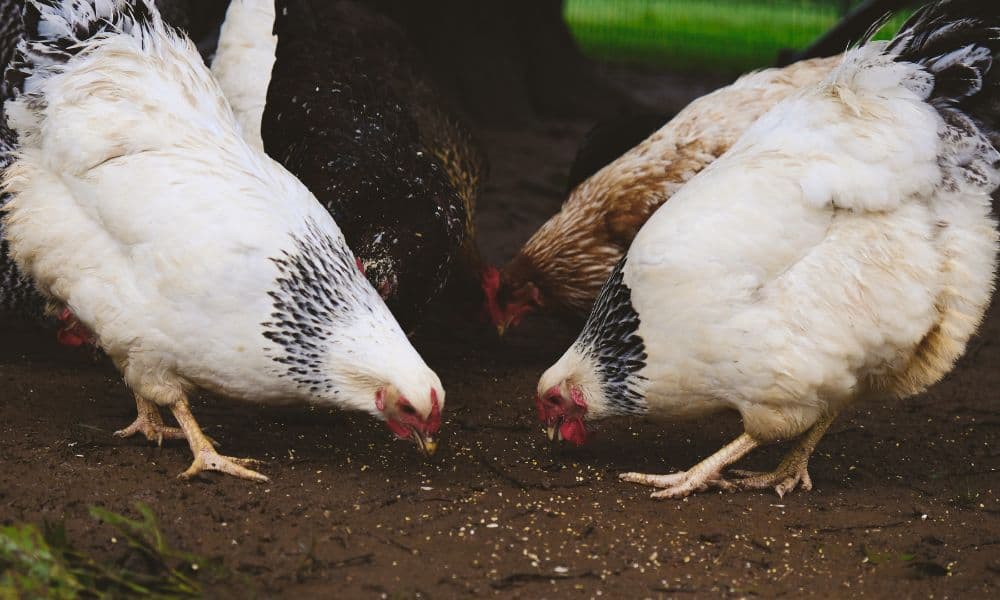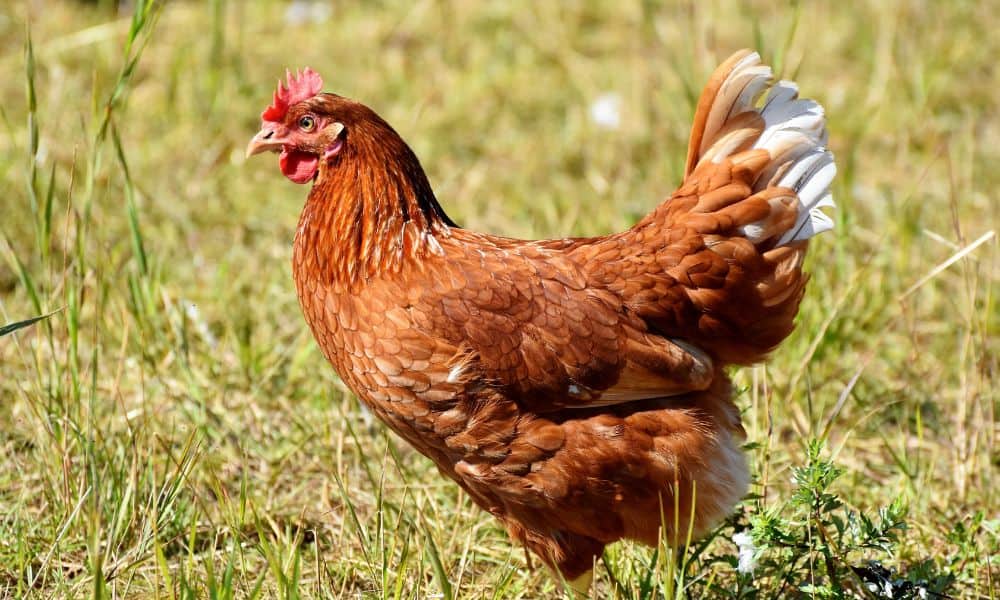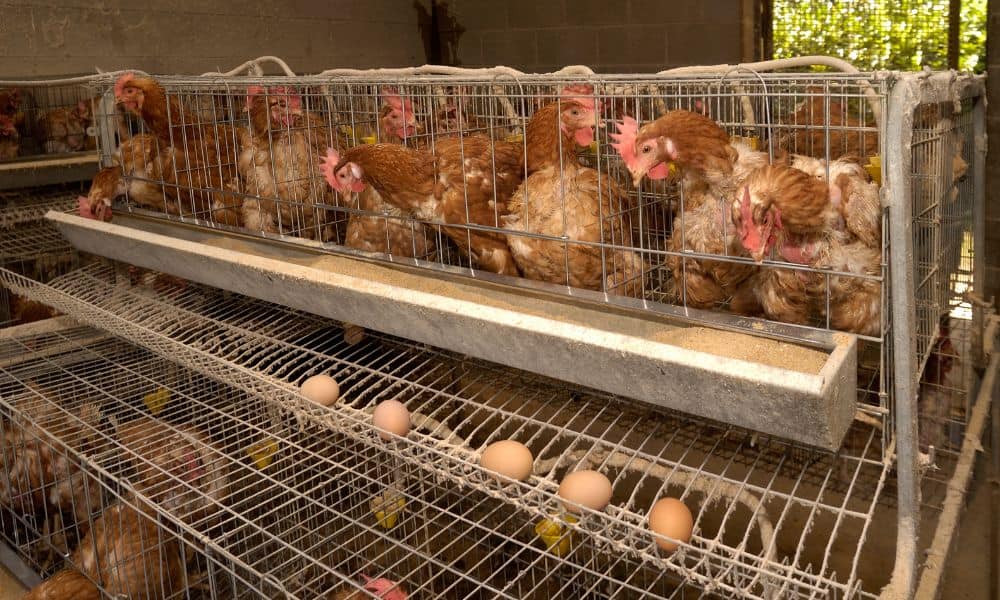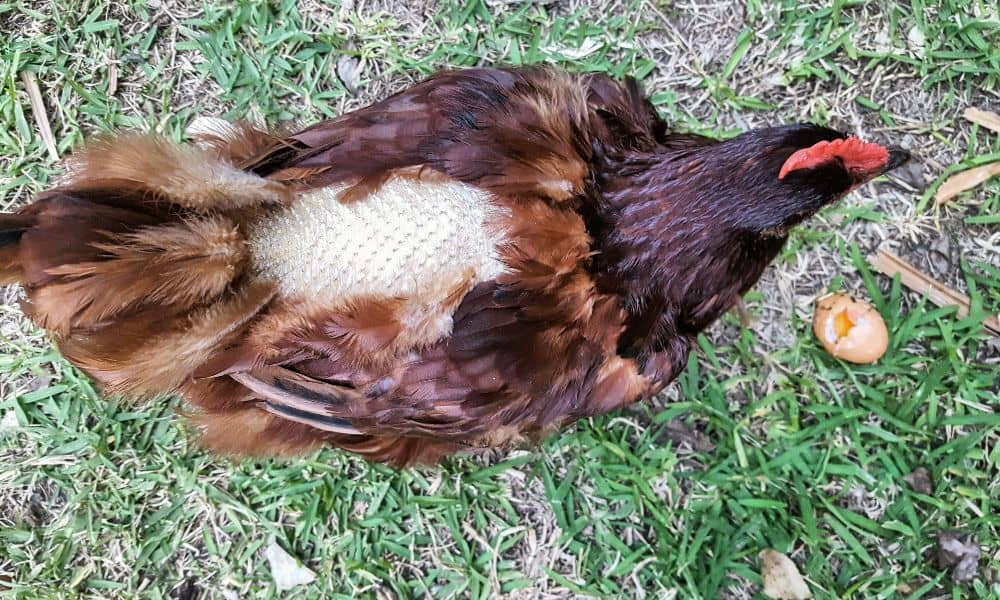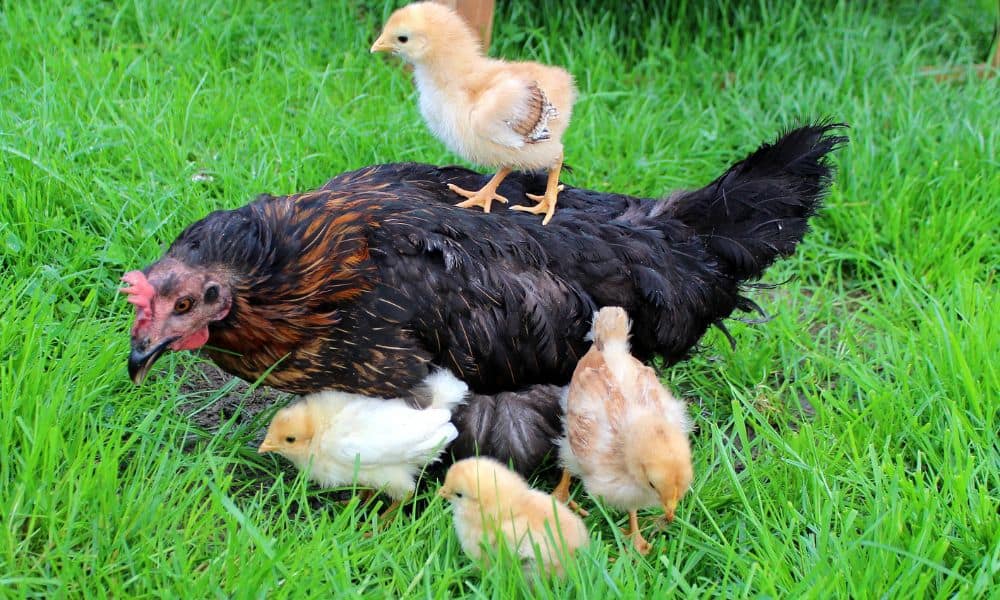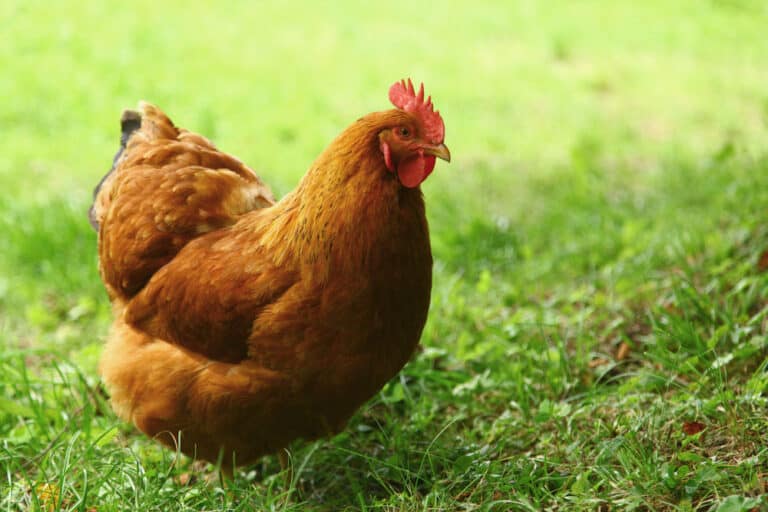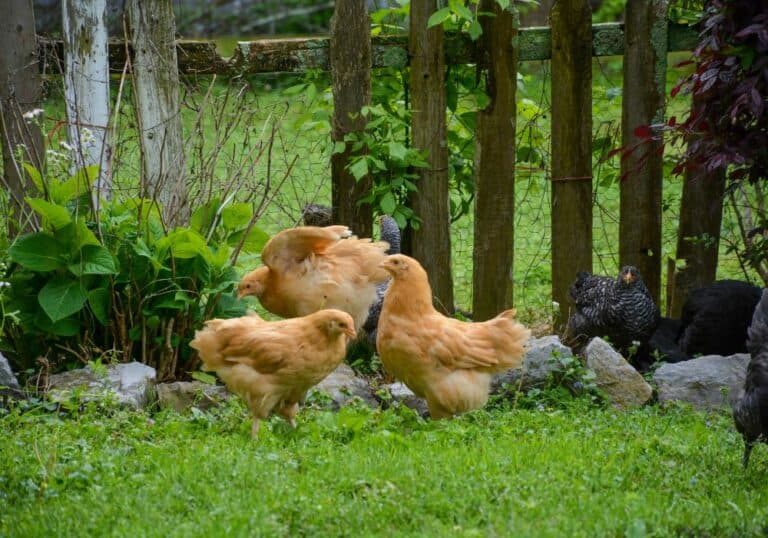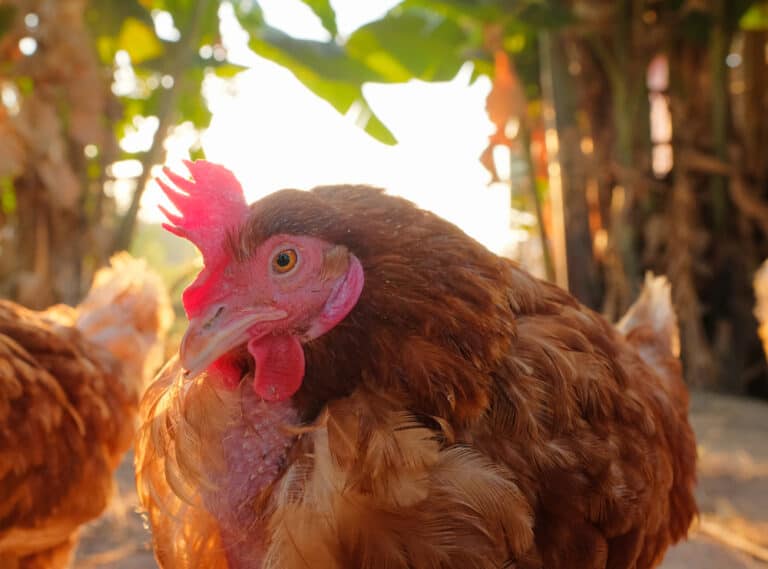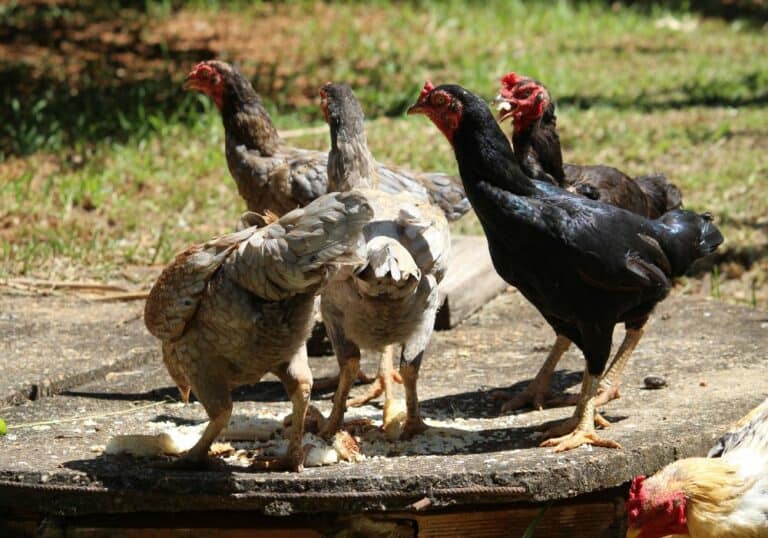Many people keep chickens mainly for the eggs they provide, so if previously productive hens stop laying, it can be a frustrating experience. However, more than this, it can also be a sign that there’s an issue that you need to resolve.
When this happens, you need to identify the underlying reasons for the reduced egg laying – and to help you do this, in this post, we talk about the most common reasons why chickens stop laying eggs.
What should you expect from a laying hen?
In optimum conditions, you can expect a young hen to lay an egg once every 23-26 hours, and if one of your hens suddenly starts producing less than usual, you should take notice of it because it could be a sign that something’s wrong.
There are many reasons for hens’ egg production to drop, and in many cases, it is quite natural – and things may return to normal without any intervention on your part.
However, you still need to work out what caused the drop in productivity because your help might be required – and here are the top reasons chickens stop laying eggs.
1. Diet
One of the most common reasons for chickens to stop laying is changes to their diet.
Chicken feed is specially formulated to provide for all of their nutritional needs, and if you change a feed that is yielding good results and replace it with something else, it can sometimes cause your chickens to lay fewer eggs.
For example, if you decide to stop buying commercial feed and make your own instead, if the feed you give them doesn’t contain all the nutrients they need, egg production may dry up.
Some of the most important aspects of a laying chicken’s diet are calcium and protein, and if a hen’s diet is lacking in either of these, she won’t be able to lay – so if you don’t know exactly what you’re doing when making feed, it’s best to stick to the commercial stuff.
Another problem can be if you are giving a chicken too many treats.
Although you might think the treats you are providing are healthy and nutritious, they may actually be reducing the amount of essential nutrients the chicken is getting from her feed.
This is because a chicken filling up on the wrong kind of food is like somebody eating too many chips and then not eating their veggies.
If this happens, the result is the same – she will stop laying.
To avoid this, always follow the rule that treats should make up no more than 10% of a chicken’s diet – and the rest should come from the commercial feed you give her.
Finally, never neglect water because if hens become dehydrated, they won’t lay eggs. This is why it’s important to provide plenty of drinking water during the hotter months of the year.
2. Daylight
Another common issue, and one that experienced chicken keepers will be familiar with, is a chicken’s daylight requirements.
A hen needs a minimum of 10 hours of sunlight a day to lay, and she needs 14-16 hours a day to be laying at optimal levels.
However, during the winter months, the hours of daylight are reduced, and your chickens’ production levels will also drop off.
One solution is to install artificial light to fool the chickens’ bodies and hormonal systems that there are still enough hours of daylight to continue laying eggs.
Many chicken keepers prefer to avoid this, though, because winter is the time when chickens’ bodies rest and recover, and forcing them to continue laying at a full rate is unnatural and will wear them out.
Much better is just to accept that during winter, you will receive fewer eggs – although you should still receive some – and allow your birds to have a few months of working part-time.
3. Stress
Chickens that are stressed may stop laying altogether, and there are several factors that can cause this – so let’s have a look at some of the most common ones now.
-
Predators
If your chickens sense a predator nearby, it may cause them to halt production.
It can be difficult to tell where the threat is coming from – and the threat may be imagined rather than real – but to get your chickens back to their former levels of production, you need to find out what’s going on.
Is a raccoon or fox trying to get into the coop at night? Or perhaps they feel threatened by a pet dog or local cat that is prowling around near their cage.
You may have to do a little detective work to remove the threat, but once the hens feel secure, they should start laying again.
However, if a hen is attacked by a predator, it’s likely that she will stop laying for some time.
All you can do in this case is nurse her back to health and make her feel as safe and secure as possible – and with luck, she will eventually start laying again.
-
Overcrowding
An overcrowded coop can be distressing for a hen, so make sure they have enough space to live.
Inside the coop, you need about four square feet per bird, and outside in the run, it should be over five square feet per bird.
If you provide them with enough space, stress levels will drop, and they should start laying normally again.
-
New additions
If you add new birds to the flock, it can stress your hens out as the new pecking order is established. After a period of becoming accustomed to one another, the problem should disappear.
However, if the pecking order becomes too aggressive and the birds don’t get along, you may need to remove some of the hens from your flock.
-
Being moved
Similarly, being moved can stress hens since they appreciate predictability and routine.
If you need to move their coop, expect a short settling-in period – after which, hens should return to their previous levels of productivity.
4. Temperature
If the outdoor temperature is too hot or too cold, hens may also stop laying.
You can help by providing plenty of drinking water during hot weather and extra bedding when it gets cold.
If the temperature becomes excessively cold, you may also consider heating their coop – but only heat it by a few degrees, or they won’t be able to regulate their body temperatures to compensate for the difference in temperature between inside the coop and outside.
5. Broody
When hens go broody, they stop laying – and won’t lay until they snap out of it.
A hen goes broody when she wants to hatch chicks and believes her eggs are fertilized, and when this happens, she sits on them without moving and won’t lay again until the chicks are hatched.
Of course, if the eggs aren’t fertilized, the eggs will never hatch, so you need to wait for her broodiness to pass or use various techniques to help her stop being broody.
6. Molting
When hens reach 18 months old, they molt for the first time, and this is then repeated once a year for the rest of their lives.
During this time, all the hen’s nutrients are diverted to growing new feathers, and unfortunately for chicken keepers, it means the hen stops laying.
There’s nothing you can do about this because it’s just a natural process, and depending on the hen, the annual molt can last up to 16 weeks.
However, you can try to speed things up by switching the bird’s diet to one with a higher protein content – and then when the molt is over and she’s ready to lay again, you can switch back to the regular diet.
7. Illness

If you have eliminated all the other possibilities, if a hen stops laying, it could mean she’s ill – and it’s a good idea to pay attention to a chicken’s laying habits because it can serve as an early warning sign about sick chickens.
One common illness your chickens can pick up is a cold, and if you see a hen with a slimy nose walking around with her beak open to breathe, you should separate her from the rest of the flock until she recovers.
Another possibility is that your chicken has parasites, so you should inspect her plumage to see if she has lice or ticks, and you should also consider de-worming her if you can’t find anything on the outside.
If you think your hen is not laying because she is sick, but you can’t find out why, the best thing to do is take her to see a vet.
8. Old age
Finally, as chickens grow older, their egg production drops off – and in the end, they retire and stop laying altogether.
The first year a hen lays is her most productive, after which, production falls each year.
Again, this is just natural, and there’s nothing you can do when a hen retires apart from thank her for her years of service and let her live out the rest of her life as a senior member of the flock.
Or, of course, you can put her in the pot instead as a reward for all her hard work if you’re that way inclined!
Several reasons – and not all of them serious
As we’ve seen, there are several reasons why chickens stop laying eggs, and many of them are natural and nothing to worry about.
However, other causes can indicate a problem that needs to be resolved, so if your ladies stop laying, you need to find out why and shouldn’t just ignore it.

